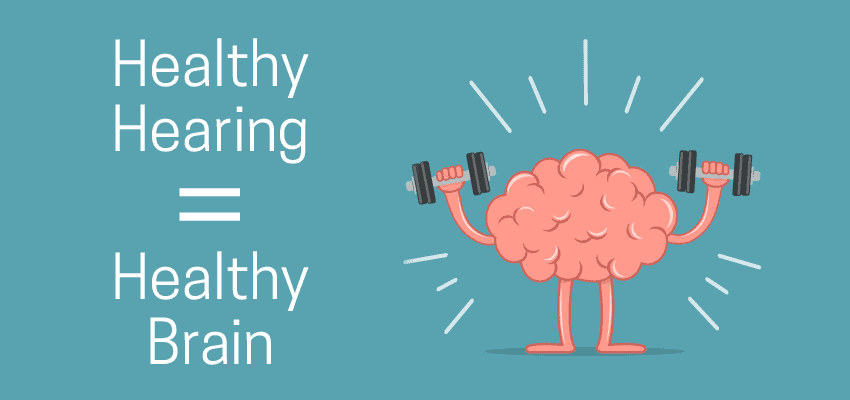HAVE YOU HEARD?
Cognition is a relevant and emotional topic for most people. According to the Global Alzheimer’s Disease Awareness Survey, 62 percent of adults worry they may develop Alzheimer’s disease-a concern that is greater than cancer, stroke, heart disease, diabetes and arthritis combined. Subjective cognitive decline can be an early sign of dementia but according to the Center for Disease Control and Prevention, many concerned patients never discuss their symptoms with their primary care physician.
According to the Lancet Commission, hearing loss is the leading modifiable risk for cognitive decline when addressed in midlife. However, individuals with subjective cognitive decline and the general public may be unaware of the effects of hearing loss on cognitive function. Other contributing factors include but are not limited to vision loss, diabetes, hypertension, multiple medications, sleep disorders, chronic anxiety and depression.
It is probable many PCPs do not have the time needed to address cognitive concerns with their patients and may not recognize impairment until the moderate to severe stage. I have discussed this issue with a local physician, who is also a patient of our clinic, and he agrees. He said we think we know our patients and only screen those we think are having an issue, but in a clinic environment many patients can fool us.
Several theories may explain the correlation between hearing loss and cognitive decline. Lin and Albert described common factors such as age, vascular risk (smoking, diabetes), and social factors (education), as well as the effect of hearing loss on increased cognitive load, changes in brain structure and function, and reduced social engagement. The increase on cognitive load results in poor performance on memory and executive function tasks. Typically a diagnosis of dementia or cognitive decline is given by a PCP or neurologist. Because hearing loss and dementia have similar symptoms, it is recommended to have hearing assessments prior to formal cognitive testing while wearing appropriate amplification /modifications.
In an audiology clinic, we spend more time with our patients throughout multiple visits. A patient’s cognitive performance plays an important role in their overall audiological abilities and assessment. It impacts our patient’s ability to process speech, especially in background noise, influences their decision-making process and affects reaction time and memory. Cognitive performance helps guide audiological treatment by enabling us to better understand and anticipate the needs of our patients, supporting the selection and fitting of hearing technology and allowing for more targeted rehabilitative measures that may contribute to successful outcomes.
For these reasons we have implemented cognitive screening in our clinic. When necessary, a referral to a PCP or neurologist can be provided. Most, if not all, of our professional organizations recognize cognitive screening (not diagnosis) within our scope of audiology practice. We are using Cognivue Thrive: a nonverbal cognitive screening procedure that is computerized, self-administered program that eliminated the effects of scorer bias and hearing ability.
A study in the Journal of American Geriatrics Society reported hearing aids may have a mitigating effect on trajectories of cognitive decline later in life, stating that “providing hearing aids or other rehabilitative services for hearing impairment much earlier in the course of hearing impairment may stem the worldwide rise of dementia”. Although improvements in cognitive skills have been observed with hearing aid use “we do not have direct, objective, causal evidence which confirms hearing aid use prevents cognitive decline or improves function”. Many research studies are underway to provide more needed insight.
We are excited to take our diagnostic evaluation and rehabilitation services to the next level. If you are interested in scheduling an appointment, please call Jamie or Diane at 704-633-0023. Visit us at www.hearingsolutionsofnc.com/. Jane, Cheryl and I look forward to seeing you soon.

